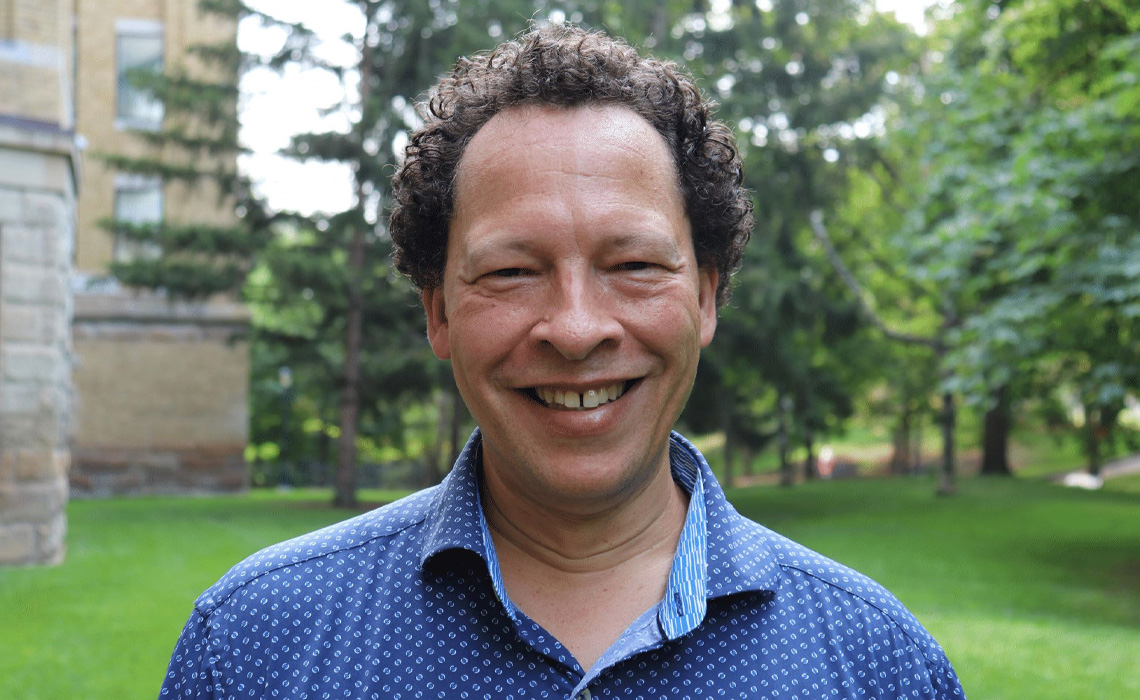Lawrence Hill balances social issues and history with humour and dramatic intensity

MRU’s Office of Equity, Diversity, and Inclusion and the Faculty of Arts is hosting renowned author and creative writing professor Lawrence Hill at a public talk celebrating Black History Month, on Friday, Feb. 28 at 3 p.m. at Ross Glen Hall.
The author of 11 books, Hill is best known for The Book of Negroes, which explores slavery, resilience, and identity, and Blood: The Stuff of Life, which examines blood as a marker of identity, race and nationhood.
A passionate advocate for literature and storytelling as a tool for empowerment, Hill amplifies marginalized voices and untold histories. His lecture will engage students, scholars, and the public in discussions on race, identity, citizenship, and social justice.
We caught up with Hill prior to his MRU event.
Your lecture is titled, Faction: Negotiating the Fact and Fiction in the Art of Storytelling. Without giving too much away, can you share some of what people can expect to hear?
I find it quite challenging to build the sort of historical and socio-economic worlds that fascinate me — full of migration, racial politics and identity issues — without compromising dramatic momentum. So I would like to discuss the themes and issues that have obsessed me over the decades, while acknowledging the challenge of balancing them with humour, irony, playfulness, and dramatic intensity.
How did you come to write fiction? Who were your early inspirations either as teachers or authors whose work you read?
As an African-American immigrant to Canada, the very last thing that my father, Daniel Hill, would have wanted was to see me become a novelist. He was telling me from the age of five that I was to be an engineer, doctor or lawyer. Something respectable, and safe. But he shot himself in the foot by making me write letters for all the things I wanted, as a child. First pet, first pair of Levis jeans, first pair of Adidas rom running shoes. He generally gave me what I pleaded for in those letters, so I saw a good thing and just kept writing. My earliest inspirations were the African-American writers whose works I pilfered from my father’s shelves and began to devour as a teenager: James Baldwin, Zora Neale Hurston, Langston Hughes, Richard Wright, Ralph Ellison, Gwendolyn Brooks, Malcolm X, Alex Haley, etc.
Your books touch on identity, searching for home and an honest telling of history. How do you see literature and storytelling as empowering those who are marginalized?
We look for guidance, inspiration, hope and empathy in literature, and we also look to be challenged. It is easier to be moved in these respects when we find characters and situations with which we can identify. It doesn’t mean that the protagonist of a novel has to resemble the reader in any direct way. But the reader needs a foothold into that protagonist’s soul. People who are marginalized need literature profoundly, too, as it becomes a safe, quiet, solitary space to reflect, breathe deeply, and find oneself.
Your latest project is a novel about the African American soldiers who travelled to northern British Columbia and Yukon during World War II to help build The Alaska Highway. What drew you to this fascinating topic?
I was electrified when I found out some years ago that some 5,000 African-American soldiers were sent by the U.S. Army to build the Alaska Highway in Northern B.C., Yukon and Alaska during WWII.
Back to the process of writing, what advice do you give to your own students who aspire to write fiction?
Take the time to dream, imagine, slow down, and look out the window. Take the time to connect with the beauty of your own imagination. It helps to tune out the world, often. Because the noisy and intrusive and ever-demanding “look at me” world tends to act as a barrier to creative thought. So invest in your own inner beauty and creative self by allowing yourself regular periods of alone-time.

